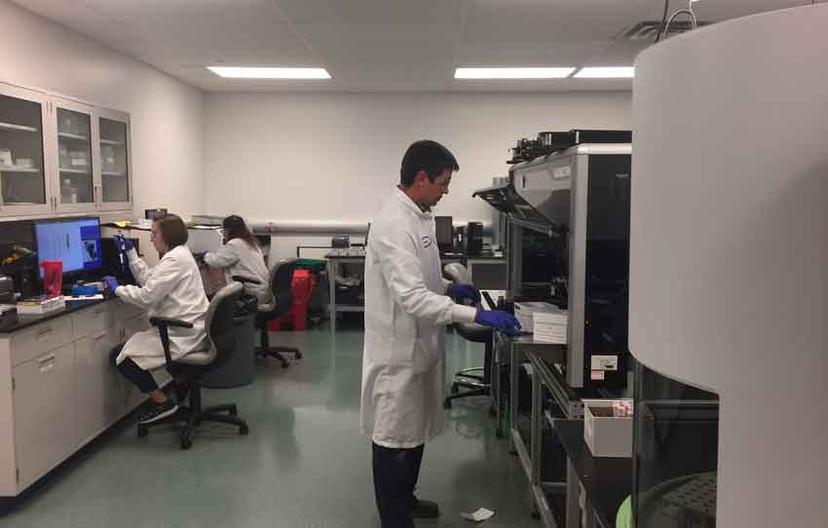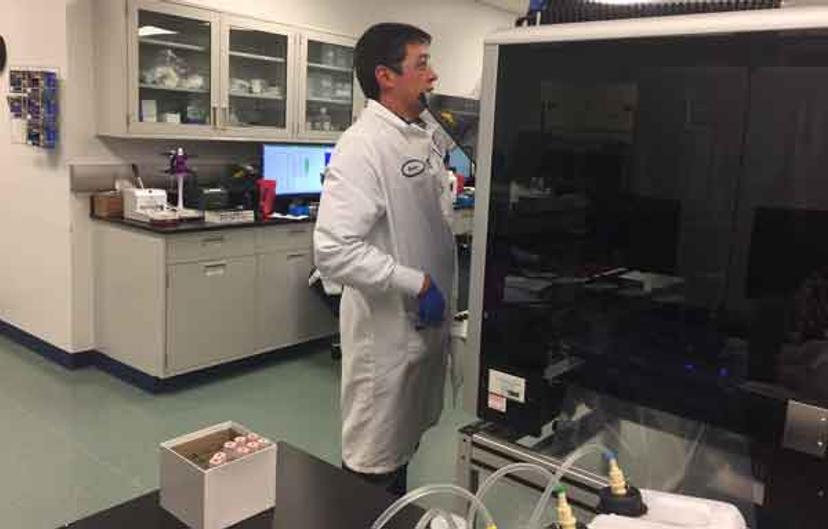Best Practices in Sample Biobanking and Bioprocessing - Minimizing Risks and Enhancing Efficiency
Dr. Jesse Gore, of Brooks Life Science Systems, explores the most important considerations and the latest trends in processing and storing samples at a global biorepository
4 Oct 2017


SS: Please tell us a bit about yourself and your role at Brooks Life Science Systems
JG: Hello, I'm Jesse Gore, I obtained my Ph.D. in biochemistry from North Carolina State University. My expertise is in cell and molecular biology, and histological and nucleic acid procedures, including genomic and transcriptomic analyses. I lead our sample bioprocessing laboratory team at the BioStorage® Technologies biorepository of Brooks Life Science Systems in Indianapolis. Brooks is the global leader in comprehensive sample management solutions for advancing life sciences discovery and development. Our lab specializes in custom sample processing services, including fully-automated aliquoting, nucleic acid isolation, blood fractionation and cell isolation. We collaborate with a wide range of life sciences customers to meet their R&D needs.
SS: What services does your lab offer and for which industries?
JG: Globally our labs in North America, Europe, Singapore and China are co-located with our sample storage bio-repositories and we offer sample prep, genomics, cell line services, pathology and bioanalytical services. Our customers include biotech, pharma, academia, agri-research, government institutions and not-for-profit disease research foundations. Our facilities are FDA accredited, ISO 9001:2015 certified and CAP & CLIA certified and are members of ISBER and ESBB. We adhere to the strictest sample lifecycle quality processes to ensure the highest level of sample and data integrity.
Analyzing Thermal Excursions of Cryogenically Frozen Vials - Read more here >>
SS: What are the most important considerations when processing and storing samples?
JG: Our primary focus areas are: sample integrity, timely and transparent sample inventory access, and sample data availability. Our mission is driven by best-in-class sample management practices, quality processes and delivery of customer performance requirements.

SS: Please tell us about the latest trends you have seen in sample processing and management
JG: Consistent with overall advances in life sciences and in discovery and development, we are investigating enhanced adaptability to high-throughput systems, increasing use of 2D bar-coded storage consumables and automated sample handling instruments, stronger integration of cold-chain logistics and connectivity of sample data sources across various points in the value chain. Brooks is leading the innovation and implementation of sample management best practices in partnership with our customers for their specific end-use workflow requirements.
Protecting Bio-Sample Temperatures Using Automation - Click here to find out more >>
SS: Which technologies help you to process and manage samples?
JG: In our Indianapolis sample bioprocessing laboratory, we have six robots that together automate aliquoting and nucleic acid extraction procedures. This enables rapid turnaround and consistent results. These are fully integrated with sample scanning and tracking systems for complete chain of custody throughout the sample prep process.
SS: Please describe the strategies you have developed for managing laboratory sample preparation and bioprocessing solutions
JG: We have implemented consistent training and operating procedures across all our global laboratory sites, with the same instrumentation, processing protocols and QC & QA methods. This is key for delivering consistent results to meet defined quality standards. Other strategies which have improved consistency and save time include integrating automation with data management, and sample tracking through the use of matrix coded consumables.
When to Automate Bio-Sample Storage - Read Brooks' expert guide >>
SS: What do you see for the future of sample processing and management?
JG: It will continue to be an active area that is constantly growing and evolving to adapt to technological advancements, and there will be a need for rapid data delivery and tracking. I believe Brooks Life Science Systems, with its comprehensive sample lifecycle solutions portfolio, and our partnership with global R&D organizations is poised to empower meaningful discovery and development advances.
Discover how you can automate sample management in your laboratory. Visit our Lab Automation Community.
